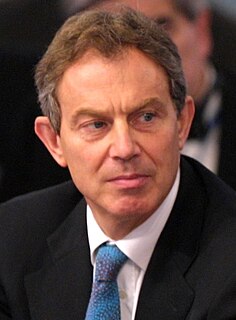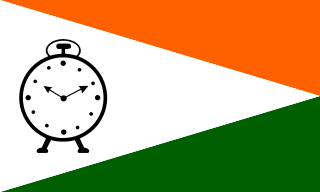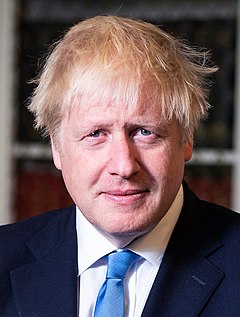Related Research Articles
The Politics of India works within the framework of the country's constitution. India is a parliamentary secular democratic republic in which the President of India is the head of state and the Prime Minister of India is the head of government. It is based on the federal structure of government although the word is not used in the constitution itself. India follows the dual polity system, i.e. a double government that consists of the central authority at the centre and states at the periphery. The constitution defines the organisational powers and limitations of both central and state governments, and it is well recognised, fluid and considered supreme; i.e. the laws of the nation must confirm to it.
Proportional representation (PR) characterizes electoral systems in which divisions in an electorate are reflected proportionately in the elected body. The concept applies mainly to geographical, and to ideological partitioning of the electorate. For instance at the European parliament each member state has a number of seats that is (roughly) proportional to its population. The same logic prevails when voters vote for parties. If n% of the electorate support a particular political party or set of candidates as their favorite, then roughly n% of seats will be won by that party or those candidates. The essence of such systems is that all votes contribute to the result—not just a plurality, or a bare majority. The most prevalent forms of proportional representation all require the use of multiple-member voting districts, as it is not possible to fill a single seat in a proportional manner. In fact, PR systems that achieve the highest levels of proportionality tend to include districts with large numbers of seats.

The United Kingdom is a unitary state with devolution that is governed within the framework of a parliamentary democracy under a constitutional monarchy in which the monarch, currently Queen Elizabeth II, is the head of state while the Prime Minister of the United Kingdom, currently Boris Johnson, is the head of government. Executive power is exercised by the British government, on behalf of and by the consent of the monarch, and the devolved governments of Scotland, Wales and Northern Ireland. Legislative power is vested in the two chambers of the Parliament of the United Kingdom, the House of Commons and the House of Lords, as well as in the Scottish and Welsh parliaments and the Northern Ireland Assembly. The judiciary is independent of the executive and the legislature. The highest court is the Supreme Court of the United Kingdom.

The 1997 United Kingdom general election was held on 1 May 1997. The incumbent governing Conservative Party led by Prime Minister John Major was defeated in a landslide by the Labour Party led by Tony Blair.
A by-election, also spelled bye-election, and also known as a special election or a bypoll (India), is an election used to fill an office that has become vacant between general elections.
A multi-party system is a political system in which multiple political parties across the political spectrum run for national election, and all have the capacity to gain control of government offices, separately or in coalition. Apart from one-party-dominant and two-party systems, multi-party systems tend to be more common in parliamentary systems than presidential systems and far more common in countries that use proportional representation compared to countries that use first-past-the-post elections. Several parties compete for power and all of them have reasonable chance of forming government.

In a first-past-the-post electoral system, voters cast their vote for a candidate of their choice, and the candidate who receives the most votes wins. FPTP is a plurality voting method, and is primarily used in systems that use single-member electoral divisions. FPTP is used as the primary form of allocating seats for legislative elections in about a third of the world's countries, mostly in the English-speaking world.

The Nationalist Congress Party is one of the eight national parties in India.

The Rashtriya Janata Dal is an Indian political party, based in the state of Bihar. The party was founded in 1997 by Lalu Prasad Yadav.

The All India Trinamool Congress is an Indian national political party mostly active in West Bengal. The party is led by its founder and current chief minister of West Bengal Mamata Banerjee. Following the 2019 general election, it is currently the fifth-largest party in the Lok Sabha with 22 seats. Since its inception the party has been at the forefront of the anti-communist movement in West Bengal.

The Lok Janshakti Party (LJP) is a state political party in the state of Bihar, India. It was led by late Ram Vilas Paswan. The party was formed in 2000 when Paswan split from Janata Dal (United). The party has considerable following amongst Dalits in Bihar. The party was a member of the National Democratic Alliance. Actor turned politician Chirag Paswan is the party president.
Elections in Hungary are held at two levels: general elections to elect the members of the National Assembly and local elections to elect local authorities. European Parliament elections are also held every 5 years.

The 2005 United Kingdom general election was held on Thursday 5 May 2005, to elect 646 members to the House of Commons. The Labour Party, led by Tony Blair, won its third consecutive victory, with Blair becoming the only Labour leader beside Harold Wilson to form three majority governments. However, its majority fell to 66 seats compared to the 167-seat majority it had won four years before. This was the first time the Labour Party had won a third consecutive election. As of 2020, it remains the last general election victory for the Labour Party and was also the last general election until 2019 that a single political party would manage to achieve a large overall majority over all other parties.
An independent or nonpartisan politician is a politician not affiliated with any political party. There are numerous reasons why someone may stand for office as an independent.

The 2008 United States House of Representatives elections were held on November 4, 2008, to elect members to the United States House of Representatives to serve in the 111th United States Congress from January 3, 2009, until January 3, 2011. It coincided with the election of Barack Obama as President. All 435 voting seats, as well as all 6 non-voting seats, were up for election. The Democratic Party, which won a majority of seats in the 2006 election, expanded its control in 2008. The Republican Party, hoping to regain the majority it lost in the 2006 election or at least expand its congressional membership, lost additional seats. With one exception, the only seats to switch from Democratic to Republican had been Republican-held prior to the 2006 elections. Republicans gained five Democratic seats total, while losing 26 of their own, giving the Democrats a net gain of 21 seats, effectively erasing all gains made by the GOP since 1994.

The National People's Party is a national-level political party in India, though its influence is mostly concentrated in the state of Meghalaya. The party was founded by P A Sangma after his expulsion from the NCP in July 2012. It was accorded national party status on 7 June 2019. It is the first political party from Northeastern India to have attained this status.

The 2015 United Kingdom general election was held on Thursday, 7 May 2015 to elect 650 members to the House of Commons. It was the first general election at the end of a fixed-term Parliament. Local elections took place in most areas on the same day.

The 2019 United Kingdom general election was held on Thursday, 12 December 2019. The Conservative Party, having failed to obtain a majority in the 2017 general election, had faced prolonged parliamentary deadlock over Brexit while it governed in minority with the support of the Democratic Unionist Party (DUP), a situation which had forced the resignation of the previous Prime Minister, Theresa May.
References
- ↑ Nohlen, D (2005) Elections in the Americas: A data handbook, Volume I, pp639-642 ISBN 978-0-19-928357-6